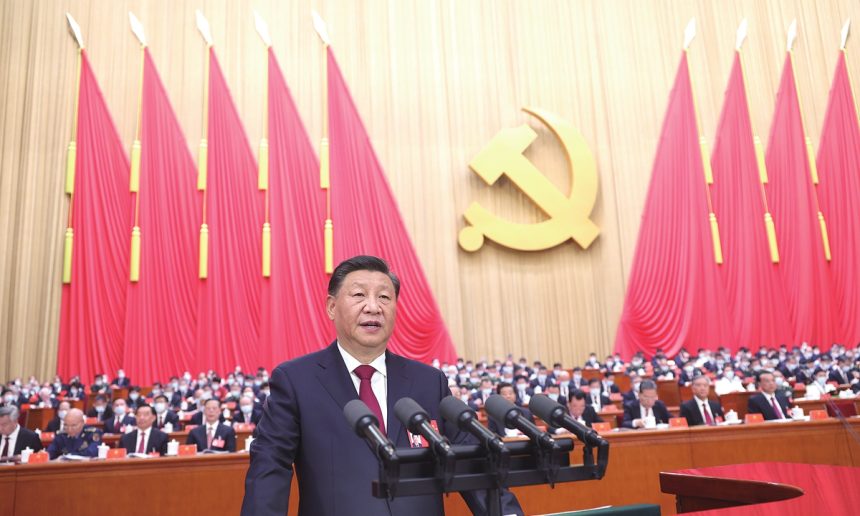When members of the Political Bureau of the Communist Party of China (CPC) Central Committee gathered earlier this month to review this year’s economic performance and plan for the next year, one key takeaway from the meeting was that political parties play a crucial role in a country’s economic stability and growth.
For any nation to progress economically and in terms of development, political parties must lead by example, crafting policies that stimulate economic growth. This includes creating an environment conducive to attracting foreign direct investments (FDIs) or conducting economic research and providing recommendations to the government for execution.
Before holding this meeting, President Xi Jinping and his Politburo colleagues hosted a symposium with non-CPC individuals to gather opinions and suggestions on this year’s economic situation and the economic work planned for 2025. This reflects the understanding that political parties must provide leadership in all sectors to ensure economic growth.
Kenya’s Kwanza administration, formed through a coalition of more than 13 political parties, has the potential to make a significant impact if these parties, led by the United Democratic Alliance (UDA), listen to the people and engage experts across various fields. This collaborative approach could result in proposals that help invigorate the economy, reducing the frustrations currently faced by the government, especially among the youth.
Political parties can also contribute to easing political tensions in the country, which is critical for attracting investment. An unstable political climate creates fear and uncertainty, discouraging investors, which in turn exacerbates the nation’s unemployment crisis.
With President William Ruto now building broader political consensus, involving ODM and Jubilee parties, it is time for these political parties to demonstrate leadership on the economic front. By doing so, they can instill confidence in foreign investors that Kenya is a stable country to invest in.
Political parties must stop focusing on the 2027 elections at the expense of the country’s economic transformation. The nation needs a focus on creating jobs and putting money in people’s pockets rather than being consumed by electioneering. For years, political parties have let Kenyans down by prioritizing the next election instead of delivering on their campaign promises.
At the recent CPC economic conference, leaders proposed a series of measures aimed at improving China’s economy for the next year. This included cutting the reserve requirement ratio, tax reductions, and consumer goods trade-in programs, all of which had a positive impact on the stock and bond markets.
For a sound economic performance in 2025, the CPC Politburo recommended adopting proactive macro-policies and implementing a more aggressive fiscal policy and a moderately loose monetary policy. This marks the first easing stance since late 2010. They also emphasized the need to enhance policy tools, strengthen countercyclical adjustments, and better coordinate policies to ensure effective and targeted macro-regulation. Boosting consumption, improving investment efficiency, and expanding domestic demand were among the key priorities.
While Kenya’s Cabinet could learn from China’s Politburo, one important lesson is that political parties must play an active role in a country’s economic growth. By emulating China’s approach, Kenya could transform its economy.
China’s shift to a “moderately loose” monetary policy after the 2008 global financial crisis is an example of a strategy focused on stimulating growth. These policies have had a significant impact on China’s economic success, driven by the active participation of its citizens through public consultations. Kenya must adopt a similar culture of public participation to develop people-centered programs, rather than imposing policies that have proven counterproductive in many cases.
Strong political leadership has been key to China’s economic rise. From 1949 to 1976, China was primarily an agricultural country, with 82.6% of its population living in rural poverty. However, in just over four decades, China’s economy has flourished. Its manufacturing sector is now the world’s largest in terms of added value, producing an estimated 15 million formal sector jobs annually and maintaining an unemployment rate below three percent. Access to education has drastically improved, reducing illiteracy from over 30% to below three percent in just 40 years.
For any country to grow economically and industrialize, it must have focused, ethical, and patriotic political leadership. A nation with a self-serving and unfocused political class cannot achieve sustainable growth.
For a nation to progress economically, as China has, political stability and a focus on transformation are essential. This fosters hope among citizens and instills confidence in both local and foreign investors. Unfortunately, many African nations suffer from power-hungry leaders who prioritize personal wealth accumulation over the welfare of their people, sometimes imposing authoritarian regimes.
In countries where political instability prevails, businesses shut down, foreign investors withdraw, and the economy stagnates. Despite the best economic policies, little can be achieved without a stable political environment.
Despite global challenges and pressure from some Western countries, China has continued to seize opportunities arising from its economic growth. The country’s meteoric rise has sparked geopolitical tensions and efforts to undermine Beijing, yet the Chinese people have remained resilient.
The Writer is a Journalist and Communications Consultant





